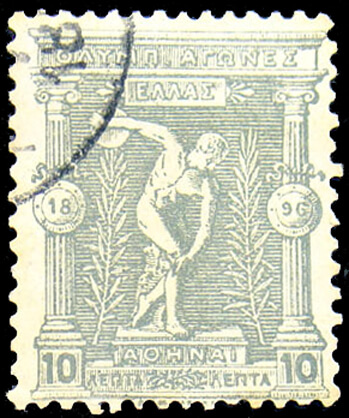From the XNUMXth Song of the Muscles - From Olympia to Tiberias

On April 6, 1896, 120 years ago today, the Olympic Games were resumed, which were perhaps one of the most important enterprises of antiquity, which for hundreds of years were a sporting cultural center and a source of national pride starting from the third century BC, when before that it was an internal Greek competition.
It turns out that this was not the first innovation of the Olympic Games. The most famous contribution of Herod, King of Judea, in the physical-sports field, focused on the revival of the Olympic Games, and about this, Josephus writes the following lines: "He (Herod) raised the honor of competition at Olympia, which for lack of money had greatly diminished its glory compared to its (famous) name, By installing financial revenues for the games and glorifying the celebration both in terms of the sacrifices and in terms of the other decorations. Because of this ("megalopsychic") generosity, Herod was crowned among the citizens of (the city) Elis (with the title of) permanent organizer of games" (Antiquities of the Jews, 149 XNUMX).
In his second essay, The Wars of the Jews, Josephus completes the above description as follows: "The claimant may claim that only the inhabitants of the cities who received gifts (from Herod) enjoyed them. But with the generosity of his heart to the people of Elis (a small town near Olympia, which from the very beginning of the Olympic Games was the one that held and supervised them) Shay gave not only to the communities of Greece, but to the entire world ("Oikomena") - wherever he heard of the glory of the Olympic Games. When Balis passed through on his way to Rome (12 BC or perhaps 8 BC), in the year of the existence of the competitions held once every four years ("the games of the fifth year"), and he saw that they were decreasing in size due to a lack of money, and that with their sunset the last vestige would disappear of ancient Greece, took it upon himself to be the editor of the games for this year, and even gave sums of money for the future to come, thus ensuring that the memory of his tenure as the editor of the games would not pass from the world" (The Jewish Wars, 427 426-XNUMX).
The Olympic Games, which were the pinnacle of classical physical culture, of course, from the third century BC onwards, were beset by a severe crisis due to several factors: first - the decline of Greece as a result of a series of exhausting wars; Second - the center of gravity was moved to the east since the Hellenistic period; Third - the city of Alice, which was entrusted with the management of the games and their supervision, fell into a serious economic crisis from the beginning of the first century BC; Fourthly - the sport became more and more professional and aggressive under the influence of the Roman conquests and therefore found no place for it in the classical Olympic atmosphere of non-professional sports; Fifth - Olympia's place was taken by local sites.
Olympia seemed to expect a brave initiative, almost hopeless, in the form of reviving her glory, and Herod took up this gauntlet. and why? First, due to his pro-sports inclination; secondly, as an integral part of the construction bug that plagued him; Thirdly, in order to be portrayed again and again as having a noble, charitable character, befitting a Hellenistic prince. Fourth, out of a desire to strengthen the ties between him and Augustus, the ruler of Rome, and this because Augustus was known as an avid fan of Greek and Hellenistic culture and it is not for nothing that Josephus notes that Herod revived the Olympic Games on his way to Rome, partly to meet with Augustus and win his support regarding the appointment Herod's successor; Fifth, Rome asked to be portrayed as the heir of the Hellenistic Empire and Herod decided to be the one to leverage Rome's dream in this regard; Sixth, a kind of rumor spread that there was a mythological connection between Judah and Sparta; Herod may have expected that athletes from Judea would also take part in the prestigious games, mythologically.
It is true that Herod's contribution was supposed to strengthen his prestige among everyone who knew him, but the question arises, could Herod have financed this tremendous enterprise? The answer to this is positive. Herod was known as the owner of many assets and as someone who knows how to invest his money wisely and it is not inevitable that as a result of his enterprise in Olympia the economic ties between Judea and the cities of Greece will be strengthened.
Herod won a special appointment, a reward for the financial aid he gave to Olympia, and he is "agonotatas (permanent games organizer) permanently". This appointment and this title were foreign to the classical world of the Olympic Games. The games were presided over by a special panel of judges (the "Helanodikai"), who were chosen by lot from among the citizens of the city of Elis, and therefore Herod's appointment and title were subject to renewal on an understandable pragmatic basis. A kind of compromise was reached here, the main point of which is the appointment of an honorary president of the games, considering it a prestigious title with no functional association.
